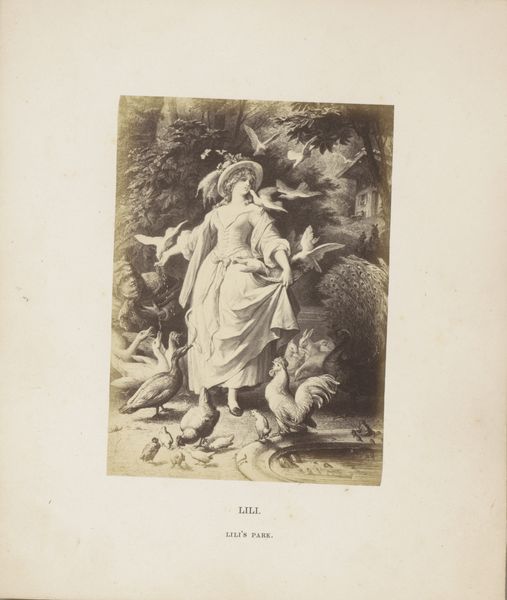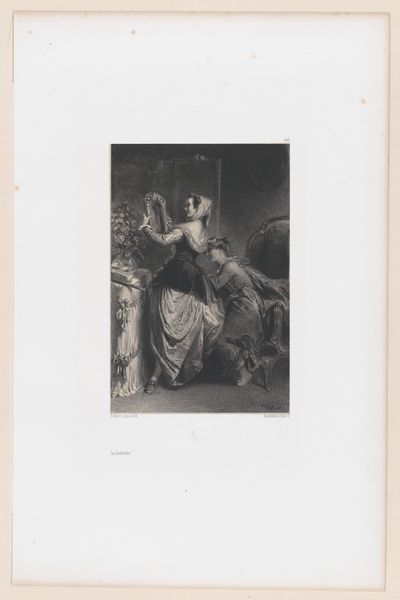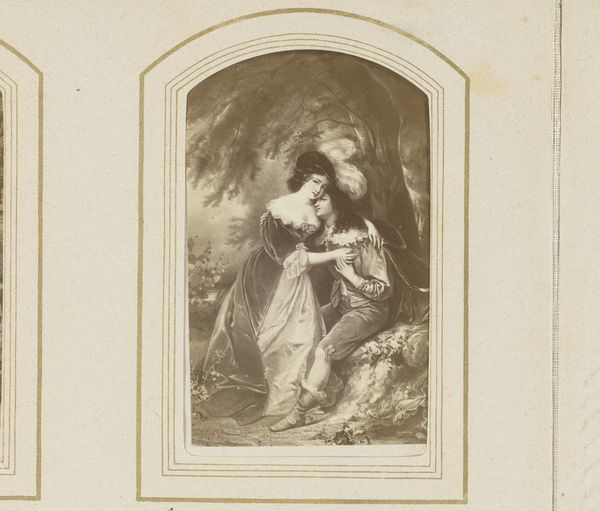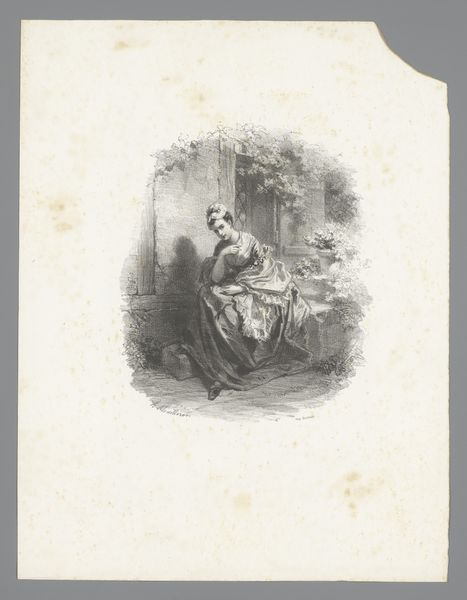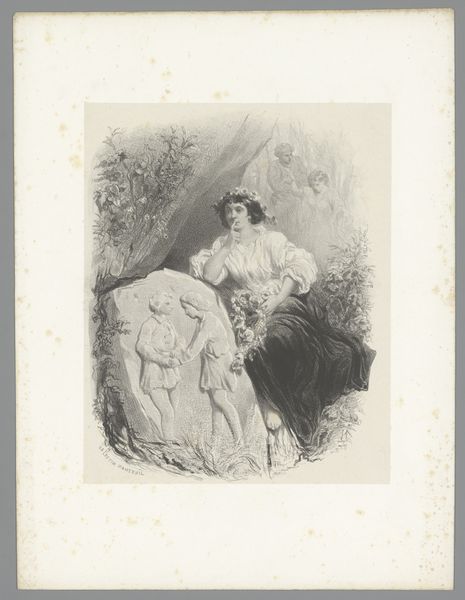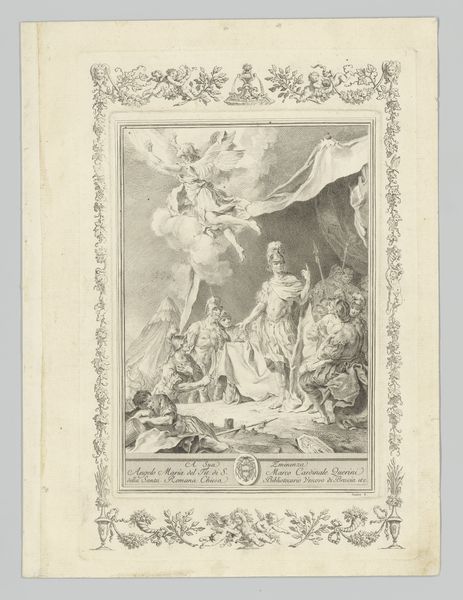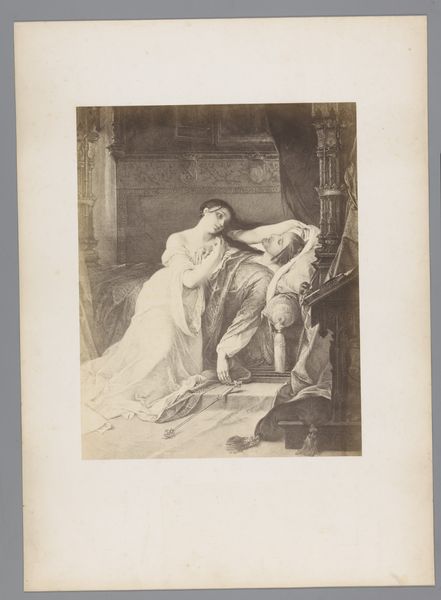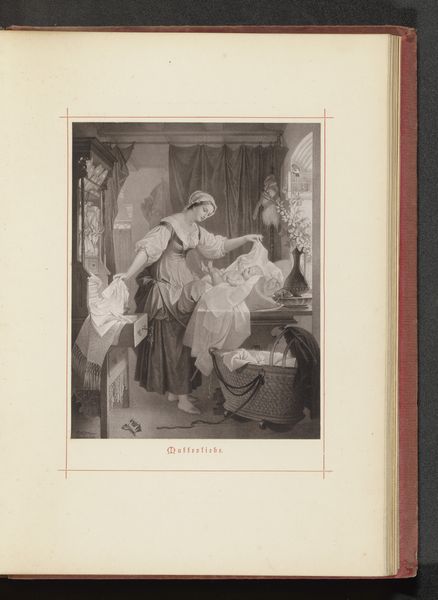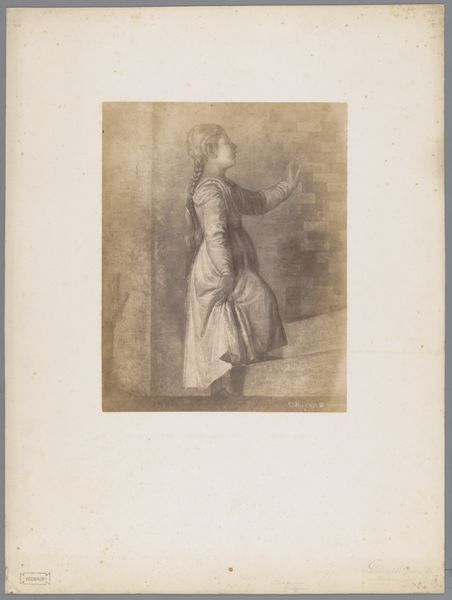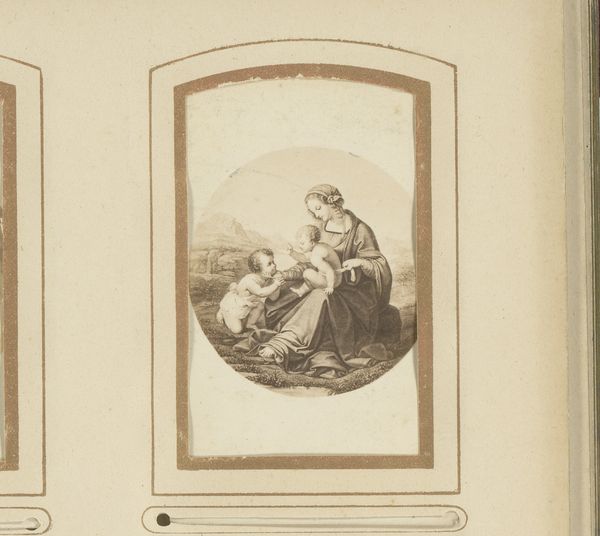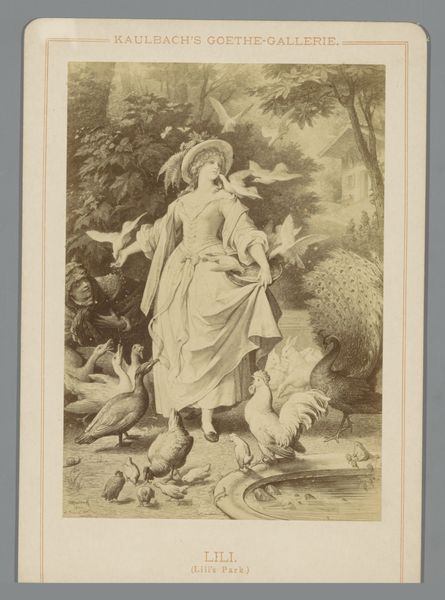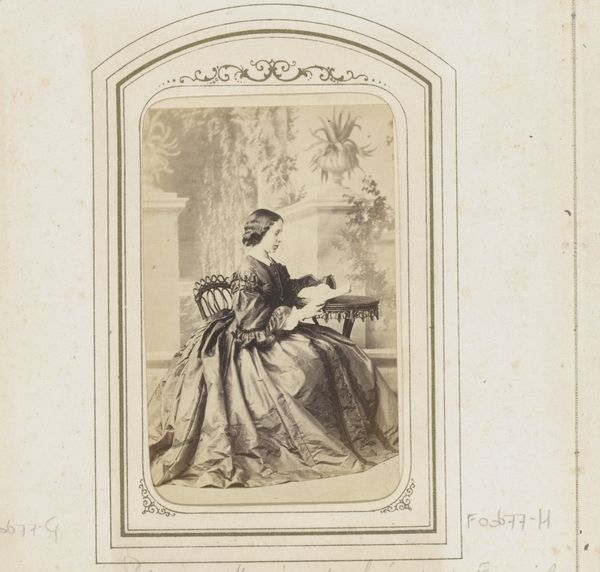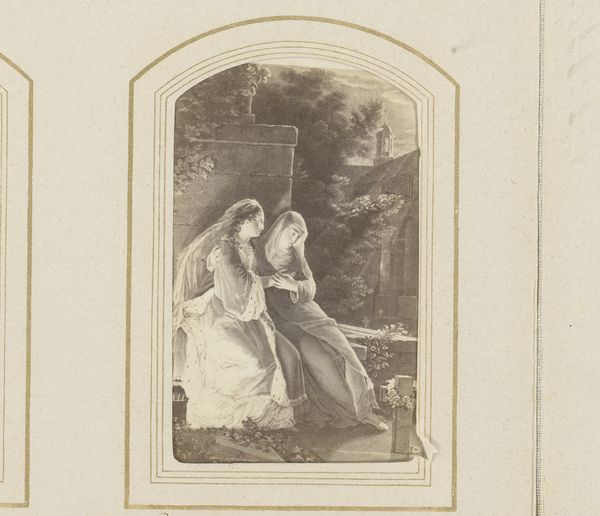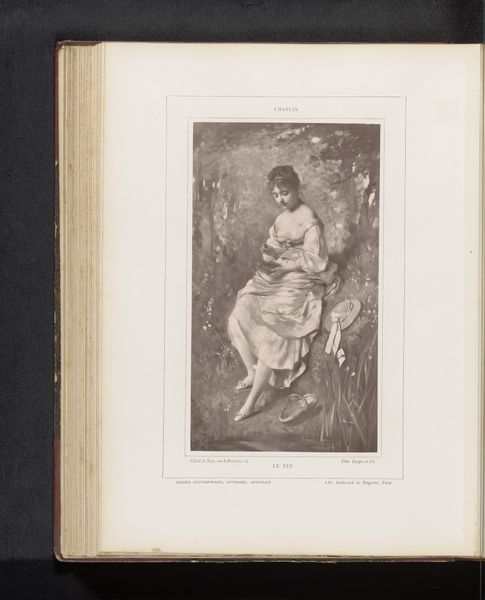
Fotoreproductie van een scène uit Goethe's Alexis und Dora c. 1880 - 1885
0:00
0:00
anonymous
Rijksmuseum
Dimensions: height 125 mm, width 95 mm
Copyright: Rijks Museum: Open Domain
Curator: This photographic print captures a scene titled "Fotoreproductie van een scène uit Goethe's Alexis und Dora," dating back to approximately 1880-1885. It resides here at the Rijksmuseum. Editor: It’s a surprisingly sentimental image. The muted tones lend a classical feel but the intimate embrace seems quite modern, despite its subject ripped from the Romanticism period. Curator: Precisely. Observe the composition—the figures are centrally positioned within the architectural frame, emphasizing their physical and emotional connection. The lines of the drapery guide the eye upwards toward their embrace. Editor: It's the creation of these photographic prints I find compelling. This image is not a scene captured as such. It is manufactured for mass consumption—perhaps from paintings or stage productions. How were the subjects remunerated? What choices of material or labour were made when reproducing this work? Curator: These are valid questions, but consider the visual language employed. The classical architecture behind the figures enhances the themes within Goethe's work, emphasizing concepts of love and beauty, but the romantic undertones complicate matters further, drawing on different pictorial and artistic themes. Editor: These kinds of romantic reproductions and their methods fascinate me. Here we have high art themes re-contextualized for mass dissemination through this printing. One wonders what a working-class individual felt holding this staged tenderness in their hands? Curator: Such an intriguing insight into its reception and means of material distribution—a far cry from how it appears. For me, reflecting on the visual construction illuminates something much deeper: the enduring power of romantic idealism captured through photographic reproduction. Editor: Yes, thinking about these romantic scenes made reproducible offers a different viewpoint on the history of their creation, one which questions the conditions and circumstances.
Comments
No comments
Be the first to comment and join the conversation on the ultimate creative platform.
